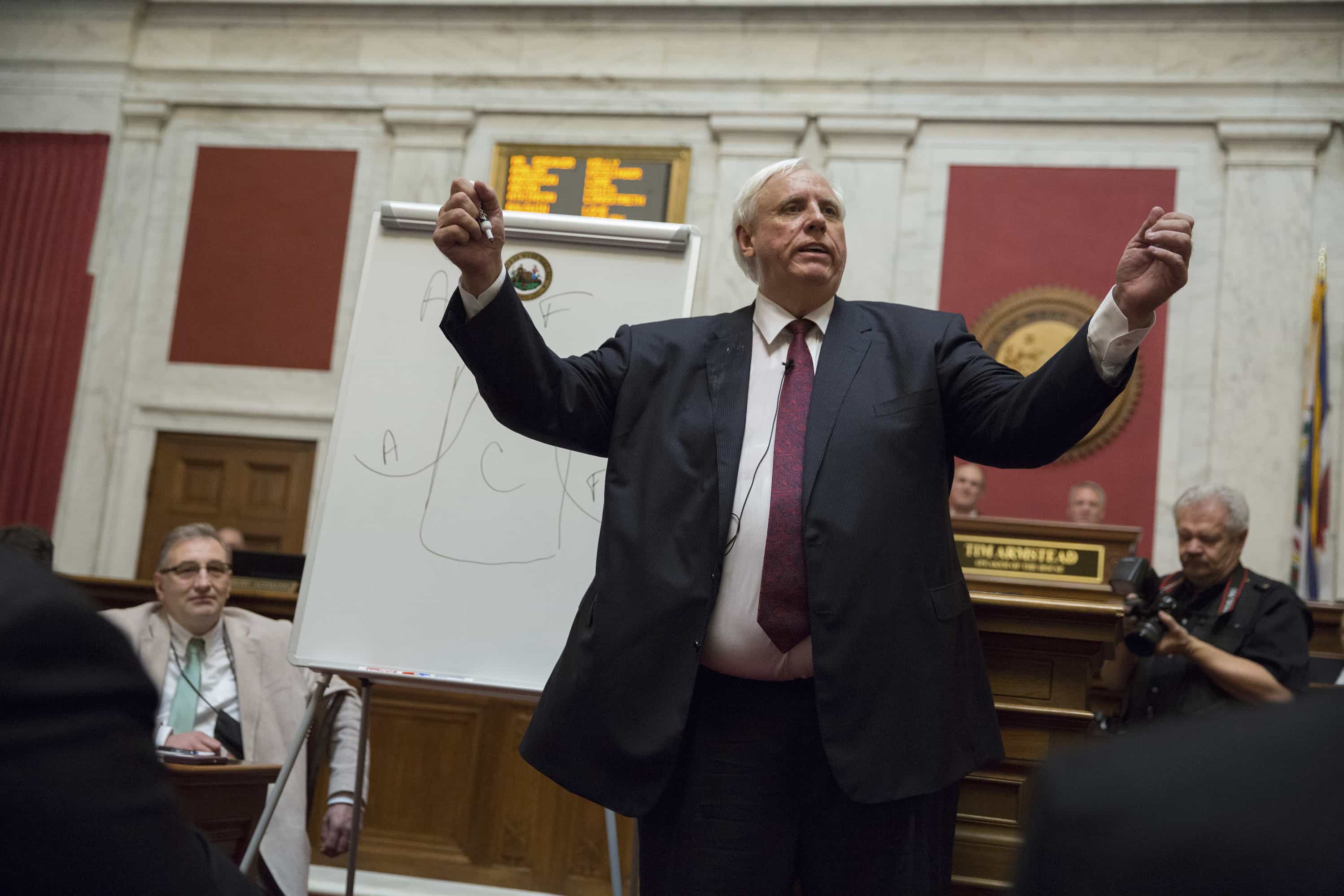Despite West Virginia Sen. Shelley Moore Capito’s outspoken criticism of the GOP’s proposal to repeal the Affordable Care Act, which would leave millions of people — and hundreds of thousands of Appalachians — with no health insurance, the senator voted with her party today to begin debating how to do so.
Late Tuesday afternoon, the Senate, with the help of Vice President Mike Pence breaking a 50-50 tie, made the vote that was nearly straight down party lines.
Capito immediately released a statement after the vote to debate the repeal, saying she will continue to make decisions in the best interest of West Virginians.
“I remain committed to reforming our health care system while also addressing the concerns I have voiced for months,” she wrote. “I will continue to push for policies that result in affordable health care coverage for West Virginians, including those who are in the Medicaid population and those struggling with drug addiction.”
A week ago, Capito publicly came out against the latest version of the Senate healthcare, saying she had “serious concerns” about the bill, and would not vote to repeal healthcare without a replacement.
Democrats and Affordable Care Act (also called Obamacare) advocates across the state are now slamming her for the decision, which pushes forward a plan that could result in the loss of healthcare coverage for 180,000 West Virginians — one-tenth of the state’s population.
“All of these proposals the Senate has floated sever Medicaid,” said Chantal Centofanti-Fields, executive director of West Virginians for Affordable Healthcare.
Capito’s counterpart in the U.S. Senate from West Virginia, Joe Manchin, also took a shot at her for Tuesday’s vote to proceed on the bill.
“There is no plan for the West Virginians in addiction treatment covered under expanded Medicaid; no plan for the seniors whose health care costs would become unaffordable; and no plan for the miner with black lung who wouldn’t be able to get the care that they need because their rural clinic had to shut down,” Manchin said in a statement released after the vote. “They effectively voted to throw the most vulnerable in West Virginia out into the cold.”
Manchin argued that members of the Senate are still unclear on what exactly they’d be voted to do in reforming health care coverage.
“Forget reading the bill, we haven’t even seen the bill. This is not how we are supposed to do things, and it shuts out the people who elected us,” he added in Tuesday’s statement.
Medicaid expansion has allowed many West Virginians to access healthcare. Medicaid enrollment increased by nearly 62 percent from 2013 to 2016, and three in ten people in the state use Medicaid. It’s also been a success in other Appalachian states like Kentucky, which — despite Senator Mitch McConnell’s claims that it is failing — has seen the most drastic fall in the adult uninsured rate of any state in the U.S., dropping from 20 percent in 2013 to less than 8 percent in 2016. In Eastern Kentucky, more than 60 percent of people are covered by Medicaid.
The decision to debate the bill, though not unexpected, is a far cry from what some GOP lawmakers have been saying for weeks while McConnell has pushed to repeal the ACA without a replacement. Capito was one of several senators who expressed similar concerns and voted to debate the bill anyway. Only two Republicans voted no: Senators Susan Collins of Maine, and Lisa Murkowski of Alaska.
It remains unclear what a replacement might look like because no official legislation has been written, but debate will soon begin in the Senate over whether or not to repeal the Affordable Care Act completely.
In states like West Virginia, some say the looming loss of Medicaid is cause for major concern.
“[GOP senators] made promises not to repeal without a replacement,” Centofanti-Fields said. “It’s worrisome. We’re urging our representatives to work together to come up with expansive coverage. It’s critically important in this state.”
Lyndsey Gilpin (@lyndseygilpin) is a contributing editor of 100 Days in Appalachia based in Louisville, Kentucky. She is also the editor of Southerly, a newsletter covering the American South.



